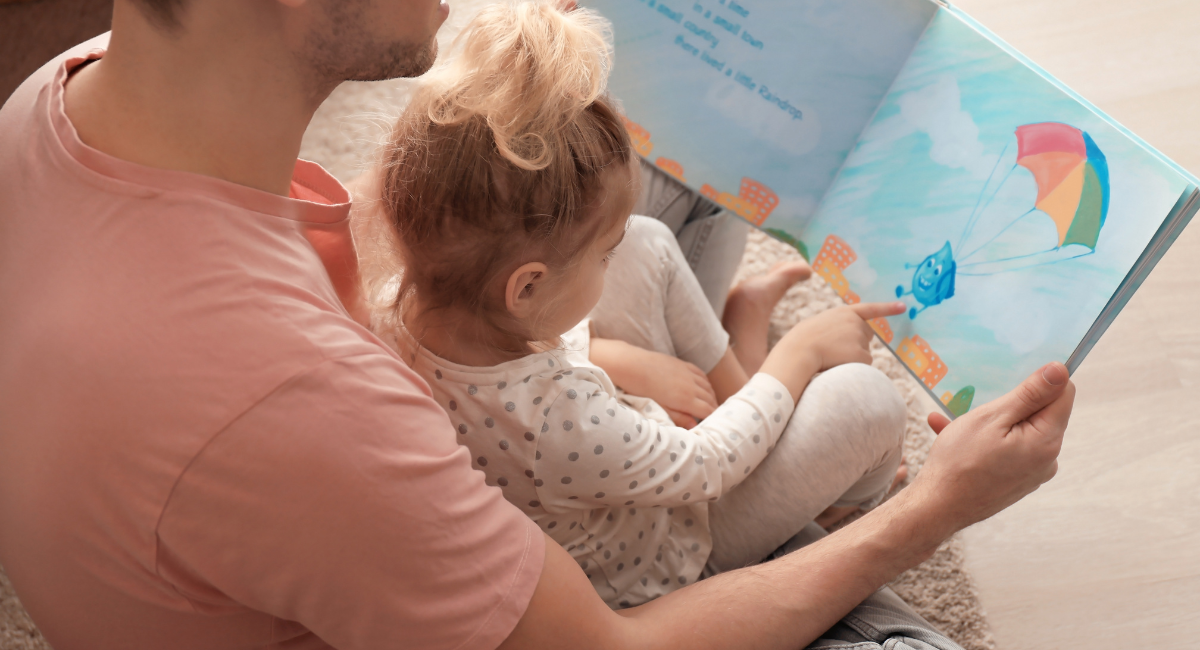Many parents wonder when to begin reading to their little ones, and the answer is: right from the beginning! Experts recommend introducing books as early as those first few months. Reading to your baby not only exposes them to new words but also supports their language development and builds a strong bond.
Your baby’s brain grows rapidly in the first three years, forming up to a million new connections every second. Adding a few short books to your routine supports this crucial period of brain growth. Reading enhances language, sparks imagination, and fosters a deep connection between you and your baby.
Why Reading to Babies Matters: The Research
Studies show the benefits are real! According to a study published in Pediatrics, babies who were regularly read to starting at six months had a 40% increase in vocabulary by 18 months. Cozying up with a book not only strengthens your bond, it also supports your baby’s cognitive development and sets a strong foundation for future learning.
When to Start Reading to Your Baby
Your baby has been listening to your voice since the womb, which is why they love hearing you talk, sing, and read aloud. Many parents start reading to their babies from birth. Even though they don’t understand the words, babies respond to sounds and rhythms, especially rhyming books. This helps boost their hearing and listening skills as they grow.
As your baby gets older, incorporating reading into your bedtime routine helps establish a calming ritual and strengthens your bond.
Benefits of Reading to Babies
Reading goes beyond teaching words—it’s a powerful way to connect. Hearing your voice makes your baby feel safe, and books introduce them to a world of sounds, colors, and ideas. Even though they don’t yet understand the words, babies love the rhythm and tone, making reading an enjoyable experience for both of you.
Reading regularly also has long-term benefits. Research shows that children who are read to from a young age tend to develop larger vocabularies as toddlers. In fact, children whose parents read five books a day hear about 1.4 million more words by the time they reach kindergarten compared to those who aren’t read to at all.
Tips for Starting a Reading Routine with Your Baby
- Read Anytime: Fit reading into any part of the day—bedtime, bath time, or even while on the go.
- Keep a Book Handy: Having a book on hand makes it easy to read a page or two whenever there’s a quiet moment.
- Create a Cozy Reading Nook: Set up a little spot at home for reading, or make it part of the bedtime routine.
- Engage with Pictures: Point to pictures and name things to help your baby start making connections.
- Encourage Babbling: As they listen, they might start babbling back or imitating sounds—early steps toward language.
- Make It a Daily Habit: Starting with a few minutes each day establishes a routine, even if it’s brief.
- Stay Flexible: Adjust the routine as your baby grows, letting them explore different books and interests.
- Repetition is Good: Babies love hearing the same stories repeatedly, which reinforces learning.
- No Pressure: Don’t worry about finishing a book. Just enjoy the time together.
Recommended Books by Age Group
0-12 Months
- Board Books: Look for sturdy, colorful books that are easy for tiny hands.
- Touch-and-Feel Books: Books with textures engage babies’ curiosity and senses.
- Rhyming Books: Babies love rhythm and sounds. Try classic rhyming books like Goodnight Moon.
12-18 Months
- Interactive Books: Lift-the-flap or peek-a-boo books capture toddlers’ attention.
- Simple Picture Books: Books that show familiar objects help with vocabulary. Try Brown Bear, Brown Bear, What Do You See?
18-24 Months
- Storybooks with Simple Narratives: Short, engaging stories spark imagination.
- Books on Feelings and Social Situations: Books that introduce emotions and empathy, such as Llama Llama Red Pajama.
2-3 Years
- Picture Books with Plot: Stories with relatable themes, like going to the park or visiting the doctor.
- Books with Repetition: Toddlers love favorites they can hear again and again, such as The Very Hungry Caterpillar.
3-5 Years
- Early Readers: Books with simple text bridge the gap to independent reading.
- Diverse Stories: Books featuring different cultures, families, or places help broaden their worldview. Try Last Stop on Market Street.
The Importance of Choosing the Right Books
Choosing age-appropriate books helps build vocabulary, comprehension, and storytelling abilities. It lays a strong foundation for future learning while creating cherished bonding moments. Tailoring your book selection to your child’s developmental stage and interests can make reading fun, instilling a lifelong love of books.
Reading to your baby is a beautiful way to connect, support language development, and introduce them to the joys of storytelling right from the start.
